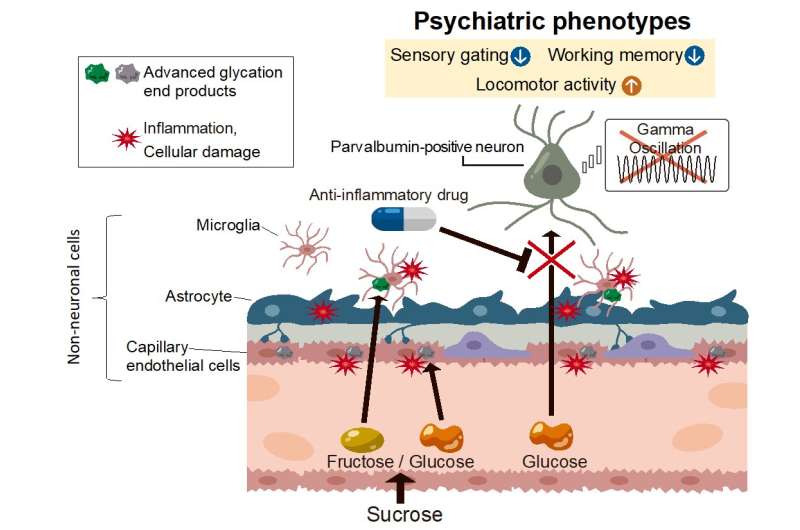Home » Health News »
Doesn’t an excessive intake of simple sugar affect higher brain function?

There has been a remarkable increase in intake of simple sugar (sucrose, isomerized sugar (corn syrup) from beverages and diets in modern society. The intake of simple sugars in adolescents, in whom mental disorders frequently occur, is higher than any other generations. Moreover, patients with mental disorders consume approximately 2-fold more sugar than age-matched healthy individuals, and patients with schizophrenia who consume more sucrose exhibit more severe symptoms. Despite accumulating evidence, it is still unproven that excessive sugar intake contributes to the pathogenesis of psychiatric disorders among susceptible individuals. Doesn’t an excessive intake of simple sugar affect higher brain function? Researchers have attempted to elucidate this causal relationship.
As a susceptibility gene for psychiatric disorder, the researchers selected Glyoxylase-1 and Disrupted-in-schizophrenia-1. By combining the heterozygous mice with environmental factors of excessive sugar intake at the age of puberty, they successfully created a novel mouse model exhibiting various mental disorder-like symptoms, including decreased sensorimotor gating function, decreased working memory, hyperactivity, abnormal gamma-band component in EEG. In other words, this demonstrates a possibility that the excessive intake of simple sugar at the age of puberty could be an environmental risk factor of psychiatric disorders.
Source: Read Full Article


